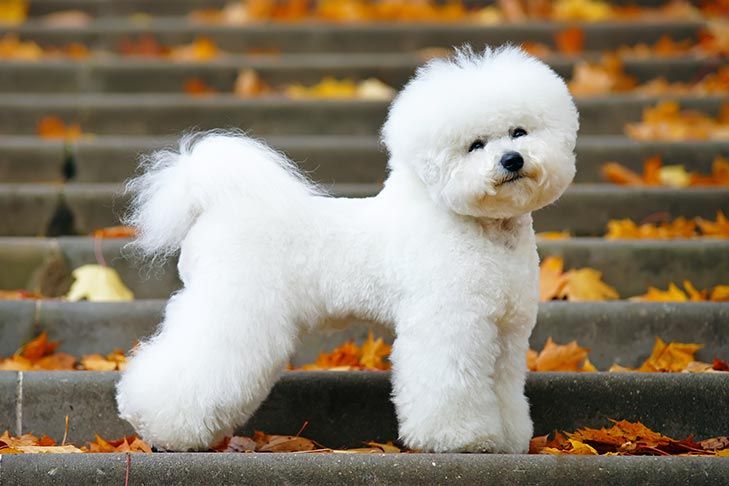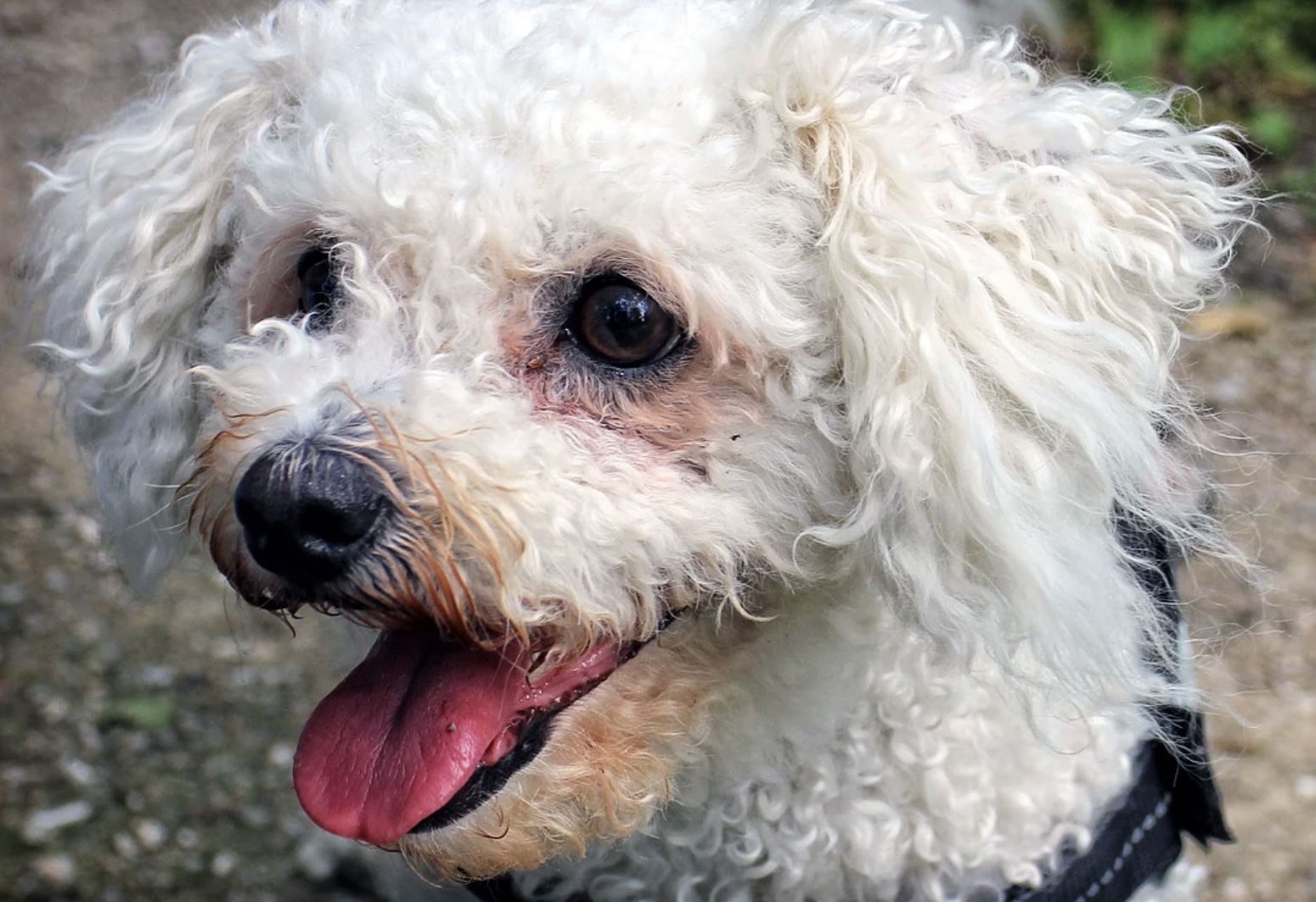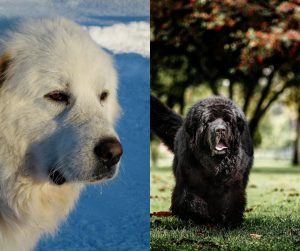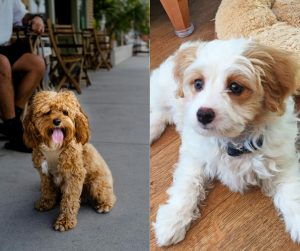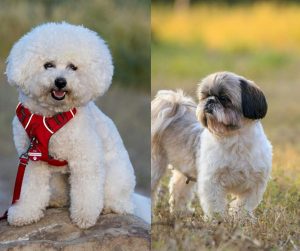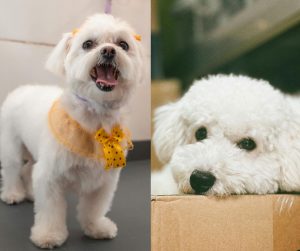Do you want a fun-loving and easy-going ball of fluff? Well, that is the Bichon Frise. This puppy has a personality to die for. Famous for its cheerfulness, playfulness, and cleverness, Bichon Frise dog breed is one of the most popular on the annual American Kennel Club list. You can have your cuddle buddy 24hours available if you get one. What are some Bichon Frise facts you need to know?
Let’s talk. If you ask any Bichon to tell you anything about itself, you will probably get this answer, “I am happy to live in any size space as long as I spend it with my humans. I am great with kids, I am their size, and I get along with other pets in the house. I need some exercise every day. And I am easy to train, except for some potty training maybe”.
Generally speaking, the Bichon fries puppy is sweet, fun, and enjoyable to be around. This dog is great for those who live in an apartment. They are active but do not require a lot of exercise. And best of all, the Bichon doesn’t shed. It is a hypoallergenic dog breed.
With that in mind, here are some Bichon Frise facts you need to know before you get this pup.
Learn the History of the Breed
Let’s start with dog breed history, ok? It starts with the Barbet, a dog also known as the French Water Spaniel.
More than 2,000 years ago, people in France wanted a smaller version of the Barbet. So, they came up with dogs that we know as Barbichons. There are many breeds in this group, Bichon Bolognese, Bichon Havanese, Bichon Maltese, and Bichon Tenerife.
But what happens with the Bichon Frise? Well, we have to thank Spanish sailors for the dog breed. Bichon Tenerife hailed from the Canary Island of the same name. Sailors in the Mediterranean grew fond of the Bichon Frise breed and transported them around the world.
But eventually, it was European nobility that started loving these dogs, especially people in Spain, Italy, and France. Loved by the royal courts, the Bichon Frise became Henry III’s favorite breed. King Henry III carried a basket around his neck to hold his Bichons.
You can also see that Bichon Frise was popular in art as well, appearing in paintings of Francisco de Goya and Pierre Auguste Renoir.
During the French Revolution, the puppy almost got extinct. They were driven out of the high court and thrown onto the streets. But they managed to charm street performers and it wasn’t long before they used Bichons to perform in front of a crowd.
The breed came to the US in 1956 when Helene and Francois Picault of Dieppe brought a few puppies over from France. The breed survived World War I and World War II in France, and now they moved to the United States. Americans loved their charming personality. The breed also excelled in dog show competitions.
In 1964, the Bichon Frise Club of America was formed. In 1971, the American Kennel Club recognized the breed and put it in the non-sporting group in 1972.
Prone to Skin allergies
Now onto some of the more serious issues with this dog breed. Bichon Frise puppy is prone to skin allergies, namely dermatitis. Make sure to keep an eye for irritated areas of the skin.
You will notice symptoms like red, flaky, and itchy skin. Irritation can spread quickly. So make sure to talk to your vet and find out the right medical treatment. Do not give your puppy allergy medication, topical ointment, or any other treatment without consulting with a veterinarian.
Tear Stains
If you have ever seen a Bichon Frise dog, you have surely noticed the tear stains. Tear staining is caused by an overproduction of tears or a dog’s inability to drain away tears normally.
It is a common issue with a Bichon Frise dog. Work with a good groomer to maintain proper hygiene in your puppy. More on grooming later.
Great Family Dog
If you want a dog that will excel in a family setting, the Bichon Frise is the puppy to get. Great with kids, other animals, or any person coming to your home, this puppy is happy and cheerful. It makes for a great fit within the family.
Unlike other small dog breeds, this lap dog is not as fragile. Yes, children might not always be gentle. So, keep in mind and monitor play between your puppy and children.
The good news is that the Bichon Frise dog is easy-going and very adaptable.
They are curious
This dog breed is a curious pup. You might not think of Bichon as an intelligent dog, but he is quite smart. Combine these two traits, and you have a dog that will try to look around and sniff around the home.
Make sure to put your puppy in a crate while away from home.
Also, you should dog-proof your home. There might be things that are too tempting for your lap dog to explore. Plants, electrical cords, garbage cans, can all look like toys to your puppy.
You should either work on manners around the home, do some crate training, or dog-proof your home. It is your choice.
Remember, this puppy’s curiosity can result in a lot of adventure.
Pay attention to separation anxiety symptoms
No dog wants to be left alone. But the Bichon Frise is an even more specific breed. This companion dog loves to spend every second with its humans.
One of the most common downsides of owning a Bichon Frise is separation anxiety. If they are left for too long, they become destructive. You might find your furniture chewed and shoes annihilated. Your puppy will also bark and whine.
That is why I recommend crate training at a young age. Or simply make sure to always have someone at home.
They can bark quite a lot
Speaking about barking, Bichon Frise is known for its excessive barking. You might not think a small puppy like the Bichon will bark a lot.
But when they hear the doorbell ring or there is strange noise outside, the Bichon Frise might react. Their barking can sometimes can become excessive.
Remember, while they are not small as other little dog breeds, the Bichon is still a small dog. As such, they suffer of small dog syndrome, which is a common trait. It can result in your puppy being scared of a large dog and barking as a defensive mechanism.
Great for allergy sufferers
As we said before, the Bichon Frise is a hypoallergenic dog breed. If you have allergies, you might want to get this puppy. The Bichon sheds less than other dogs or doesn’t even shed. With a proper grooming schedule, you can reduce puppy hair by 100%.
More on the grooming schedule later on.
Difficult to potty train
Bichon Frise is generally easy to train breed. But there are some things they struggle with. One of them is potty train. It can be difficult to housebreak.
Begin the process the moment you bring your puppy home. It is also a good idea to do some crate training. If everything else fails, try some puppy pee-pee pads.
Grooming Needs
This might be one of the reasons people stay away from a Bichon. The high grooming bills can take a toll on your budget.
Bichons needs once a month bathing, and regular trimming of their hair and nails. Some dog owners and pet parents take their dog to a professional groomer. But that can easily turn into an expensive luxury.
If you do it at home, it will take a lot of your spare time. But you can use grooming as a bonding time. Bichon Frise is a high-maintenance dog breed. Their needs need to be met every 4 to 6 weeks.
Should You Get One?
So, is this dog breed good for you? Do you consider adding a Bichon into your home? Well, as with every dog breed, there are always pros and cons.
Hopefully, some of the things we mentioned above can help you come up with an answer. The bottom line is Bichon Frise is a great family dog, great with children, great for people with allergies, and just an amazing pet all-around. But potty training and excessive barking need to be taken care of.

